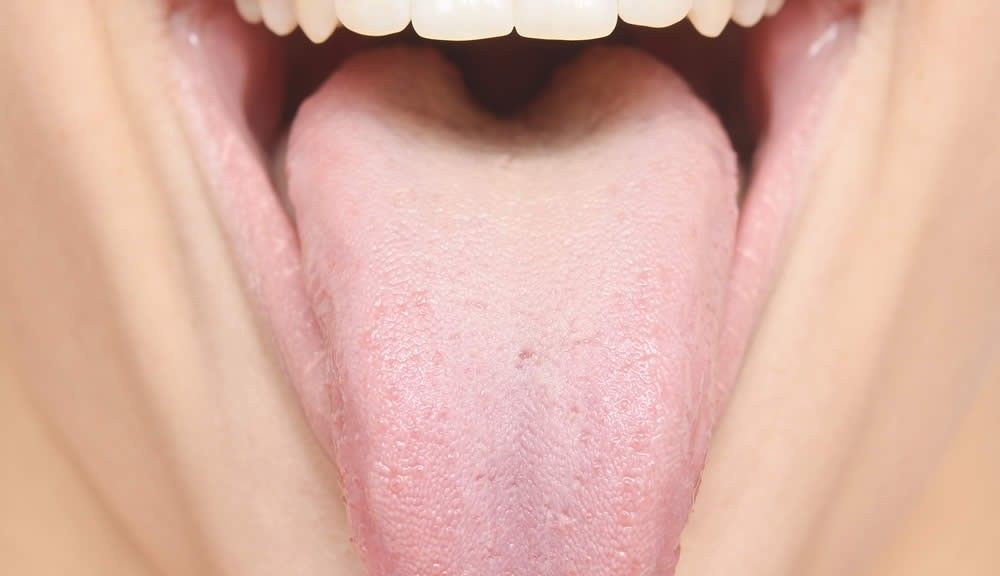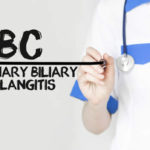
Previous
Knee Osteoarthritis and Limbrel: A Liver-Friendly Solution?

Next
Is Cranberry a Good Choice for Liver Health?
What Does Our Tongue Tell Us About Our Liver?
Find out how tongue observation can reveal more about the liver’s health than most people realize.
A primary care physician will likely ask his or her patients to open up and say “ahhh” in an effort to get a glimpse of the tongue. Besides looking at the throat, tonsils and general mouth condition, western-trained doctors know that the tongue can reveal several health clues. However, practitioners of Chinese Medicine take tongue observation to an entirely different level. By analyzing the tongue’s shape, body color, coating and moisture level, a practitioner of Chinese Medicine can accurately determine a person’s predominant health disharmony. When it comes to assessing a person’s liver health, there are various tongue indications a Chinese Medical practitioner will look for.
Nomenclature Differences
Any discussion about the assessment of liver health in western medicine (WM) and eastern medicine (EM) must first address one of the fundamental differences between these worldviews:
• WM – According to western medicine, the liver is an organ that lies on the right hand side of the abdomen, below the diaphragm and behind the ribs. The largest internal organ, the liver makes and stores glucose (fuel), cleanses the blood of toxins, makes bile to aid in the digestion of fats and manufactures several essential hormones and proteins.
• EM – According to eastern medicine, the liver encompasses the actual organ (same as in WM), but also refers to the entire liver system. This includes energetic characteristics, both physical and psychological attributes that are related to the liver’s function. In EM, the liver stores blood, ensures the smooth movement of energy throughout the body, controls the sinews, recovers energy, contributes to immunity and houses the spirit.
The Tongue in WM
A WM physician can tell several things from having a patient stick out his or her tongue, such as:
- Inflamed tongue – this could indicate a deficiency of Vitamin B
- Swollen tongue – this could point to hypothyroidism
- Tongue ulcers – this could be related to fever or infection
- Cranial nerve problems – as indicated by symmetry and soft palate movement
- Tongue lesions or ulcers – could indicate excessive stress or oral cancer
The Tongue in EM
An EM practitioner can garner much more information from tongue observation, including signs about the liver’s health. Tongue diagnosis by a Chinese Medical practitioner includes examining aspects of the overall tongue coat, shape and color – and then breaking these factors down to their exact location on the tongue. Like any single assessment method, the practitioner does not rely on tongue diagnosis alone – but uses it as a tool alongside other diagnostic methods to help provide a complete picture of a person’s health.
In EM, the sides of the tongue correlate with the liver “system.” When it comes to finding clues to how balanced and healthy the liver system is, the following indications on the tongue could point to an imbalance:
- Teeth marks on the side of the tongue – Side teeth marks are fairly common and typically relate to damp retention in the body. This could be related to sluggishness, fatigue, abdominal distention, liver inflammation, diabetes, hepatomegaly or a fatty liver.
- Dark color on the tongue’s sides – Blue, green or purple spots on the sides of the tongue indicate significant stagnation in the liver system. While this could be related to extreme stress, it might also indicate something more serious like liver cancer or cirrhosis.
- Bright red and swollen on the tongue’s sides – In EM, bright red and swollen sides of the tongue suggest a diagnosis of liver fire. In WM, liver fire could correlate with high blood pressure or inflammation of the liver such as would occur during a hepatitis flare-up.
- Tongue sides curled up – In EM, curled sides indicate liver energy congestion. This diagnosis is difficult to translate into WM, but could be due to depression, anxiety, frustration or difficult menstruation. For those with liver concerns, liver energy congestion is a frequent precursor to liver injury.
- Thick, greasy yellow tongue coat – A thick, yellow tongue coat can indicate a digestive problem with associated bloating and fatigue. The liver helps fat digestion by producing bile. Thus, a liver or gallbladder problem could hinder bile production and promote accumulation of dampness. From a WM perspective, this type of tongue coating could be seen in people with a biliary blockage or a fatty liver.
Whether consulting with a western medical physician or a Chinese Medical practitioner, there is little doubt that the tongue can be revealing. Regular inspection of your own tongue can alert you to when something is different – possibly indicating a health concern. However, there are several possible reasons for every tongue permutation discussed above. Like any assessment method, tongue diagnosis is used in conjunction with other information to get a complete picture of a person’s health. As such, a professional should always be consulted prior to jumping to a conclusion based on what the tongue looks like.
http://altmedicine.about.com/library/weekly/bl_TongueDiagnosis.htm?p=1, Tongue Diagnosis, Cathy Wong, Retrieved September 2, 2012, about.com, 2012.
http://www.ehow.com/how_4876128_discover-health-problems-looking-tongue.html, How to Discover Health Problems by Looking at Your Tongue, Retrieved September 2, 2012, livestrong.com, 2012.
http://www.lifescript.com/health/everyday-care/health_basics/decode_your_tongue.aspx, Decode Your Tongue, Nicole McEwen, Retrieved September 2, 2012, Lifescript.com, 2012.
http://www.liverdoctor.com/index.php?page=is-your-tongue-trying-to-tell-you-something, Is Your Tongue Trying to Tell You Something?, Retrieved September 2, 2012, `SCB, Inc., 2012.
Maciocia, Giovanni, The Foundations of Chinese Medicine, Churchill Livingstone, New York, NY, 1995; 77-82, 149-152.










